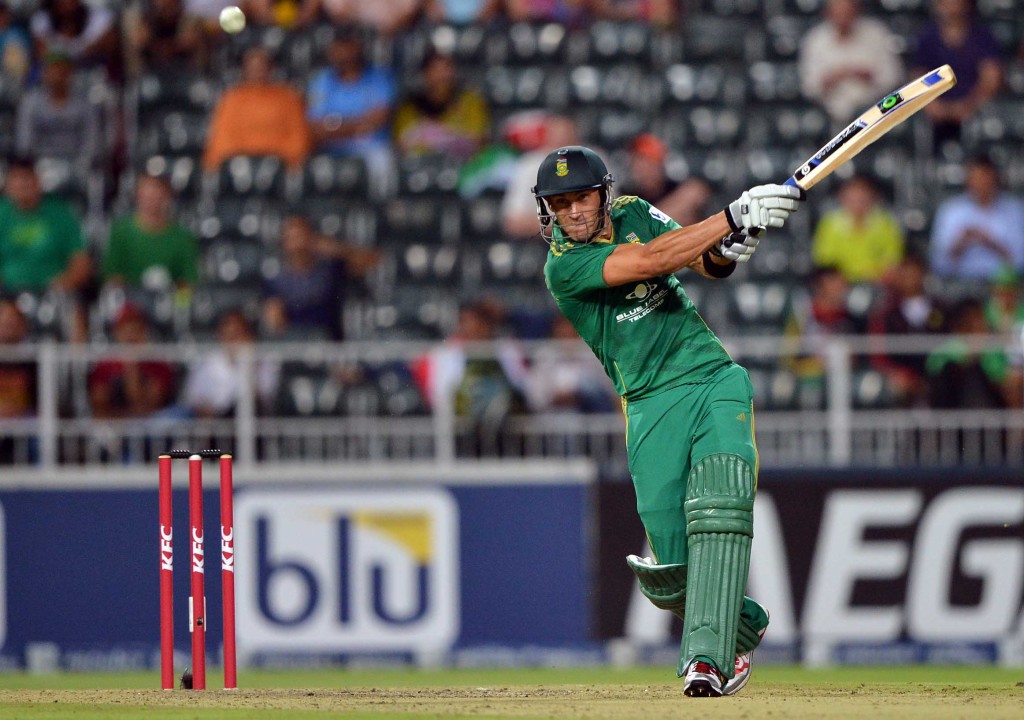Faf du Plessis is quickly becoming the complete cricketer and he will be a key figure in the dressingroom and on the field as the Proteas experience life without Graeme Smith and, to a large extent, Jacques Kallis, writes Jon Cardinelli.
‘You can’t go back,’ says Proteas coach Russell Domingo. ‘Once you’ve led your country in one format, you can’t go back to being an ordinary player in others. We’ve seen that with Faf du Plessis over the past year or so. He’s grown tremendously as the leader of the Twenty20 side, and that leadership has also been nurtured in the ODIs and Tests.’
Du Plessis has also played a telling role in some monumental Test results. It was that match-saving knock against Australia in the second Test back in November 2012 that first drew attention to Du Plessis’s unique brand of resilience, as well as his patent sense of responsibility. Among the many voices singing his praises after that heroic fight back was that of Graeme Pollock, South Africa’s Cricketer of the 20th century. Pollock predicted that Du Plessis would not only become an important player for the Proteas in future years, but a future captain too.
It’s a prophecy that came to pass, albeit to a less emphatic degree. Du Plessis has continued to deliver for the Test side, although his performances in the limited-overs teams have been more erratic.
In December 2012, he was awarded the T20I captaincy in acknowledgment of his leadership potential. While the team struggled initially, it is now believed Du Plessis’ prowess as a leader is slowly being realised.
‘We set ourselves some lofty goals when we first started out,’ confirms Du Plessis. ‘At that stage, we were fifth in the world, and now we’re joint second with India. I’m really proud of how far we’ve come, and am happy with the composition of the squad.’
Du Plessis doesn’t deny that the past year has been a learning process, and that he’s a more complete captain now than he was at the beginning of his tenure. Domingo reveals that Du Plessis’ interaction with the captains of the other two formats, the now-retired Graeme Smith and AB de Villiers, has aided Du Plessis’ growth as a leader. And yet, there still remains something that is inherently his, as Du Plessis boasts his own unique style of leadership.
‘I’ve enjoyed working with Faf,’ says Domingo. ‘We think along the same lines. He has a fantastic tactical awareness, and that is only going to get better with experience. From the outset he has had something special, but from the outset he has also challenged himself to learn and improve. For me, that’s been vital to his growth.
‘He’s learned a lot from his time with the Chennai Super Kings, working with players like [India captain] MS Dhoni. In turn, he’s tried to use that knowledge in the South African set up. I’ve noticed a difference, that is the type of game he wants to play, the way he wants to use his players. He’s open to new ideas, but is essentially his own man.’
It could be said that Du Plessis is similar to Dhoni, albeit not as decorated and experienced. Du Plessis wants to be known for his innovation as well his calm under pressure. ’I’m the type of guy who enjoys learning, who is always asking questions,’ he says. ‘I question the situation, the players, everything. My three years with the Super Kings were invaluable, and I learned a lot from MS. He’s won a lot of trophies, and he has always backed his gut feel when making decisions. At the same time, he’s a leader who thinks outside the box. It’s a concept that can be foreign to most South Africans, who are bred to be more conservative.
‘That is not to say that I haven’t learned anything from the Proteas’ leaders, because I have. Mentors don’t come any better than Graeme Smith, he’s just about the best guy you could ask for in that role. My approach has always been to question and listen. You don’t have to take every bit of advice, but rather take what you can use. It’s all about getting as much information as you can to form the ultimate captaincy package.’
De Villiers is another who has helped Du Plessis sharpen his captaincy skills. The two have been best mates since their days at Afrikaanse Hoërskool in Pretoria, and continue to enjoy a great relationship. Du Plessis laughs when he recalls those early days when the one was always competing to outdo the other.
‘Things have obviously changed,’ he says. ‘That’s not really the way things work in a team culture. The culture of this particular team is very strong, and has been three years in the making. The Test side has enjoyed consistent success, and the ODI side has also started to form a core of players and pick up the results. T20 is a very different beast in that personnel tends to change quite often, but we are striving to get that core together.’







